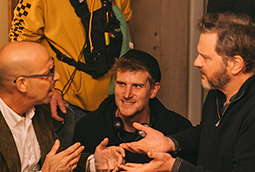
Sensitive and poignant British film Supernova envelops the audience in a loving same-sex relationship that’s beset by tragedy. Screen veterans Colin Firth (The King’s Speech) and Stanley Tucci (The Devil Wears Prada) play Sam and Tusker, two long-time partners grappling with the devastating news of a terminal diagnosis.
To that end, they embark on a journey around the staggeringly beautiful Lake District, a journey that, they hope, will heal the resentments and anxieties bubbling away beneath the surface. The stage is set for a moving drama of recrimination and redemption.
We were delighted to catch up with the director of Supernova, Harry Macqueen. During our chat, we discussed his filmmaking process, working with actors of Firth and Tucci’s calibre and subverting the expectations that often come with LGBTQ+ films.
It’s lovely to speak to you, Harry. One aspect of Supernova that I was really impressed with was the film’s ability to communicate a long-lasting, lived-in relationship between Sam and Tusker. This is communicated implicitly through body language and other elements. How did you accomplish that as a director?
Thank you – I do think that when you’re making cinema that’s subtle and observational, and you want a relationship to be drenched in its history, you do have to work very hard. A lot of it is down to performance and how you collaborate as an acting-directing team. There’s a lot that Stanley and Colin bring to it, obviously.
But it’s a real challenge. It’s dangerous territory. The process of getting that right is fragile. You have to make sure that there’s a depth of connection between the actors. It needs to feel natural but you need to ensure you’re not imposing yourself on it as a filmmaker. There’s real power and authenticity in space and silence. I was really hoping to harness that with the film. I’m glad that came across.
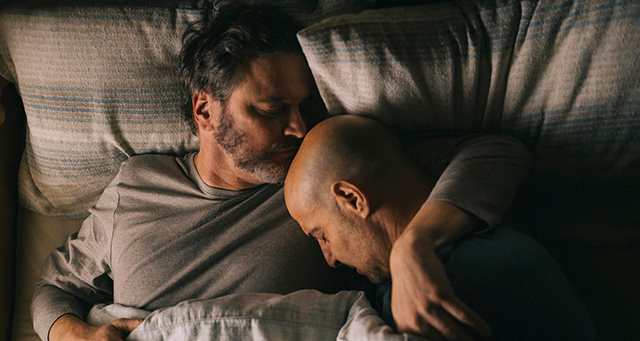
You have a background in acting, as well as directing. Does that help craft a sense of empathy when it comes to directing actors in your own film?
I really do feel that. There’s a sense of trust too. There was a level of trust present right from the start, even when you’ve got two actors as experienced as Colin and Stanley, and they’re working with me, someone relatively inexperienced. It was partly because I’d written the script but also because I’m an actor too and I’m aware there’s a shared language.
How you work with actors, and their process, is a big part of being a director. That was really helpful. It helps in the writing, too. Character is everything to me. Complexity of character and simplicity of narrative – that’s what this film really is, I suppose. Being an actor helps when it comes to writing characters, for sure.
The scenario involves a queer romance between two middle-aged men on a road trip. Do you think that there are positive movements within the film industry to accept a story such as this?
Definitely, if anything, more than ever. I would humbly say that one of the things this film does, in its portrayal of a same-sex relationship, is taking a view of mature, romantic love between two people of a certain age. We don’t usually see that, regardless of sexuality.
The film embraces this same-sex relationship and it doesn’t impact the plot in any way. It’s just a lived experience for those two characters. That felt original. LGBTQ+ films tend to be about the earlier stage of one’s life. That stage tends to be a bit more frantic and murky and deeply dramatic. This wasn’t ever going to be that story.
You mentioned working with Colin Firth and Stanley Tucci. As individuals do they have different methods towards approaching a character? Do you have certain ways to coax the nuance out of their characters?
They work in very different ways, and no way is better than the other. In general terms, Colin likes to read a lot around the subject. We talk about the script and we investigate the character. Stanley reads around it and then puts it to bed. They’re both very spontaneous and reactionary on the set, which you can tell because it’s so alive and nuanced. They’re two very different people, which helps as well.

The film is also a love letter to the Lake District. Was that landscape always intrinsic to the script?
I wrote a lot of it when I was up there. I have family up there and it’s such an inspiring environment, as I’m sure you know. It felt right for the film to be set there. It’s a road movie and they’re moving through that environment. Like everything with the project, it just felt so organic and natural and authentic. I’d written it up there, I knew the landscape and we filmed it where I’d originally intended. The landscape is both awe-inspiring and really brutal. That’s really important in a film like this.
Yes, because there’s emotional brutality in the relationship between the two characters. On a separate note, you don’t tend to get very many British road trip movies – did you consciously set out to address that?
That’s interesting. There are loads of reasons why we don’t make as many road movies in the UK as, say, America. We’re a small island and you go too far and you’ll fall off it. We don’t have an obsession with cars and vehicles quite like they do in America. But you just want to be original, as much as possible.
I wanted to avoid a lot of things. I’ve seen lots of films dealing with this subject matter that are located in a domestic setting. I wasn’t interested in the audience seeing their flat or their house or wherever they live. It links back to your first question about how natural the history feels. We don’t flash back. We don’t show the audience anything. The history just has to be there and it has to be alive. It’s quite brave to deny audiences that history, short of the people that the characters meet. But getting it on the road felt like a cool, cinematic choice.
Is it, therefore, important for you as a filmmaker to have that trust in the audience?
Massively. The audience has to be an active part of the conversation. You have to treat the audience with infinite respect and intelligence. Films are generous when they do that. The films that I love are ones that allow you to be part of the story. To not preach to you about what the story is, or where it’s going. Just to allow you to be in control of your own experience; you can become an active participant. I want to be a filmmaker who can do that.

The party sequence involving Sam, Tusker and their friends has a very organic quality to it. How much blocking and rehearsal goes into a sequence such as that?
You have to do that blocking and hope that the end result feels natural. All of the great actors help the scene feel as natural as it does. Those party scenes are a bit of a nightmare for literally everyone involved. No real wine, no real fun! [laughs] That said, the most important thing about every scene in every film, whether it’s jovial or sad, is the atmosphere on set. If you get that right, anything is possible. It can sometimes feel like a real trudge through some very complex blocking. If you ensure that everyone is part of the fun of it, then it does help.
In a dramatic sense, the story is building towards a moment of emotional revelation. I’ve heard about directors scheduling emotionally devastating scenes towards the end of principal photography to help elicit an authentic response from the actors. Did you do that on this film?
Yes, absolutely. You can’t always engineer that when making a film but we, as a team, worked really hard to accomplish it. We shot the film pretty chronologically, which is difficult when you’re doing a road movie and moving from location to location, often miles apart. It helped everyone, not just the actors. We were going on this journey with these characters, both emotionally and literally.
When we got to the scene in the cottage, we’d all known each other for weeks and weeks. It really helps. There’s so much trust on the set. When we came to the two or three days needed for the cottage sequence, this big meaty scene, it was a beautiful thing. And really sad. [laughs] There were a lot of tears.
I really liked the way that you used Keaton Henson’s music. How did you let the music push the drama forward, and equally how did you ensure that it held back?
Well the film, I hope, is quite subtle, and not too demonstrative or overbearing. I didn’t want the music to feel like it was manipulating; rather, I wanted it to amplify the experience of the characters. One of the things the film is about is the necessity of communicating honestly in a relationship. These characters are forced into a situation where they can’t be honest with each other. There are secrets and private battles.
Music can very eloquently say things that characters can’t say. Keaton did the most amazing job. On the one hand, we wanted something that was cinematic and big, but really intimate. Romantic but delicate and fragile. And on the limited budget we had. Budget, of course, has a big part to play in all of this. He did it beautifully. He’s an amazing guy.
Supernova is released in Cineworld cinemas on the 25th of June. Don’t forget about our Cineworld Unlimited screening of Supernova on the 23rd of June.
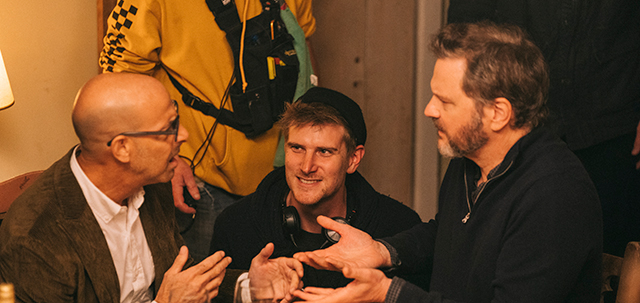
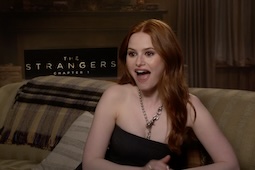
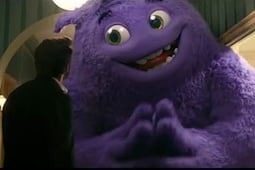
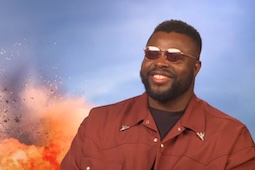


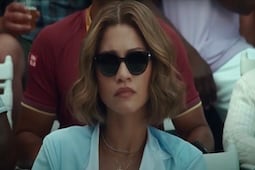
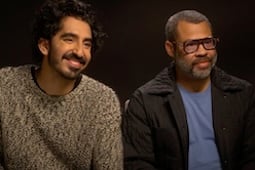
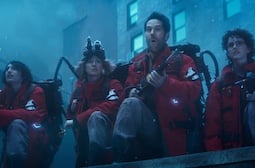
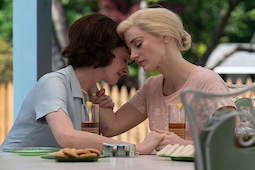
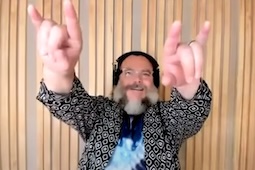
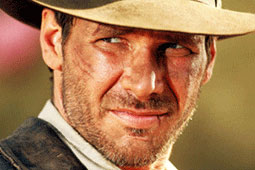

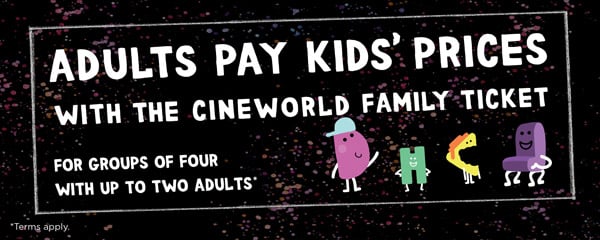

.jpg)
.png)



